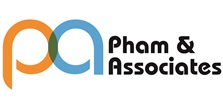
Seven ways TRIPs is enhanced for pharma
Many free trade deals go beyond the provisions of the WTO’s TRIPs Agreement. Here are some of the obligations parties often sign up to that particularly affect pharmaceutical companies
Compulsory licenses
TRIPs does not set out a list of reasons that countries might use to justify issuing compulsory licenses for medicines. The 2001 Doha Declaration on TRIPs and Public Health, however, assures countries that they are free to determine the grounds for granting such licenses. Some countries have used FTAs to pledge to limit those grounds to remedies under competition law, situations of extreme urgency and public non-commercial use. Provisions limiting compulsory licenses appear in FTAs that the United States has concluded with Australia, Jordan and Singapore.
Patent term extension
Although TRIPs requires WTO members to agree to offer 20 year patent terms, some FTAs require the parties to extend that term for pharmaceutical products to compensate IP owners for any delays in obtaining marketing approval or a patent from the patent office. This provision is common in FTAs negotiated by EFTA and the US.
Exhaustion
TRIPs allows WTO members to set their own exhaustion regimes, giving them the discretion to decide whether a patent owners’ rights are exhausted once he has sold the patented products. But some FTAs, including those that the US has concluded with Australia and Morocco, allow patent owners to limit these so-called parallel traded products in their contracts.
Patentability
Although TRIPs allow WTO members to exclude certain innovations from patentability, some FTAs bind the parties to limiting those exceptions or set out how the parties must apply the criteria for patentability. Such patentability provisions are particularly common in FTAs negotiated by the US government.
Protection for test data
Countries that sign up to TRIPs agree to protect the data that patent owners submit to them as part of the process of receiving approval to sell their medicines. The Agreement, however, does not say how long they must protect this data for. A growing number of FTAs require the parties to specify a period of time within which they will not allow companies to sell products based on marketing approval granted to the patent owners. Such data exclusivity provisions are often set at five years, but have been as long as eight years in some deals negotiated by EFTA.
Patent linkage
Countries usually have one regulatory agency that grants patents and another that approves pharmaceutical products for sale in the territory. Countries with the most IP-friendly regimes often link the two procedures. In some case this means that an IP owner will be informed if a generic rival applies to put its own version of the drug on the market; in others that generic manufactures seeking regulatory approval for their drugs must certify that their versions do not infringe any valid patents. In some cases the drug approval agency will decline to approve a generic version of a product until the original patent expires. Many of the FTAs negotiated by the US include patent linage provisions.
Enforcement
TRIPs already provides that member states’ Customs authorities protect trademarks and copyright at their borders. Some FTAs extend these enforcement provisions to other IP rights, and include goods that are transiting their countries. Enforcement provisions appear in the FTA agreed between the EC and Korea, some of the EFTA deals and most of those signed by the US.
MPI, adapted from information in promoting Access to Medical Technologies and Innovation, published by the WTO, WHO and WIPO in 2012


